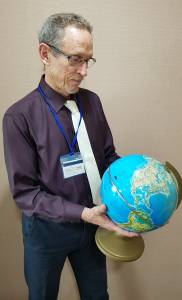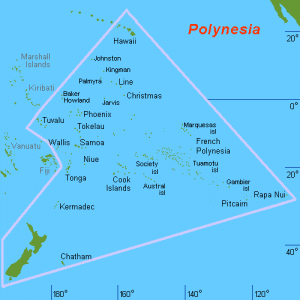Along with 30 other children, I was in class 4B at Kiest Elementary in Dallas during the 1962−63 school year. Mrs. Boley was our by-the-book teacher. As with her first name, I do not remember what she taught—maybe language arts, history or social studies.
She gave us an in-class assignment one day, the nature of which I also do not remember. I finished my work somewhat early. Rather than stare out the window, pull on Laura Brice’s ponytail or throw spitballs  at Tony Sandow, I left my desk and walked several feet to a table on which sat a globe. I picked it up and looked at it for two minutes or so. I was in a reverie as I pondered far-off lands and people who looked unlike me, spoke foreign languages and lived in ways I could not fathom.
at Tony Sandow, I left my desk and walked several feet to a table on which sat a globe. I picked it up and looked at it for two minutes or so. I was in a reverie as I pondered far-off lands and people who looked unlike me, spoke foreign languages and lived in ways I could not fathom.
I may have jumped from the Polynesian islands to Madagascar to the Middle East to Uruguay, wondering whether I would ever have the chance to visit such places, make friends and deepen my understanding. As I stood there, globe in hand and musing innocently, I got a sudden jolt. Mrs. Boley, seated at her big desk at the front of the classroom, issued a firm rebuke. I hope the reader will forgive me for being unable to recall her exact words, but at least 57 years have passed since the incident occurred. The gist was: “Richard, why are you standing there looking at the globe? You are wasting time! Go back to your desk.” I was much too young to articulate a suitable response, so I did as I was told.
I thought then, and still do, that this was a failure on Mrs. Boley’s part. I might have an even harsher attitude toward her if I had not been a teacher for 14 months at an English-language academy when I  first came to Korea. There is pressure in having so many sets of young eyes on you all the time. “Thinking on your feet” is vitally important and yet not easy.
first came to Korea. There is pressure in having so many sets of young eyes on you all the time. “Thinking on your feet” is vitally important and yet not easy.
I know nothing about Mrs. Boley’s background, but I doubt she had anything like an international or interplanetary outlook. She was probably born in Texas, attended a teachers’ college (East Texas State, Texas Woman’s University, Abilene Christian, etc.) got hitched and found a job in the Dallas Independent School District. I am not criticizing people who followed that path, partly because my own family’s background was no loftier. And Dallas—good gosh a-mighty! It was a city where narrow-minded was the norm. And so Mrs. Boley’s snap decision to admonish me for looking at our classroom’s globe was not, in retrospect, altogether surprising.
She should have recognized this as a prime “teachable moment.” The term, quite common now, probably was not in the early 1960s. It means an unexpected opportunity to convey information or wisdom to students. (Needless to say, parents do the same with their daughters and sons constantly.) First of all, Mrs. Boley ought to have seen that I was not goofing off by globe-gazing but manifesting curiosity. Why did that merit chastisement rather than  recognition and/or praise? She might have urged me to come up to the front of the room. With the others looking on, she could have asked me to specify what I had seen.
recognition and/or praise? She might have urged me to come up to the front of the room. With the others looking on, she could have asked me to specify what I had seen.
“Students, Richard was looking at Polynesia, Madagascar, the Middle East and Uruguay on the globe,” a quick-thinking Mrs. Boley could have said. With just a modicum of social, cultural and political awareness, she could have stated something about each of those places, even if she had to open the World Book Encyclopedia to do so. She might have given an impromptu quiz, using the globe as an obvious visual aid.
“Who can name three Polynesian islands?” (Samoa, Hawaii and Tahiti.)
“Where is Madagascar located?” (Near the southeast coast of Africa.) “Did you know it’s the fourth-biggest island in the world?”
“What are three cities in the Middle East?” (Tehran, Cairo and Baghdad.)
“What is the capital of Uruguay?” (Montevideo.) “What continent is it in?” (South America.) Is it bigger than Brazil? (No.)
A stimulating and memorable lesson should have happened spontaneously. It was Mrs. Boley’s job, after all, to engage young minds. Maybe some of the students—Laura Brice and Tony Sandow, for example—would have added something to the conversation. Questions could have been asked, and other related issues might have come up. All of us, including Mrs. Boley, would have benefited, and I would have avoided an entirely unnecessary scolding.


13 Comments
I was a year behind you but also in the “B” classes. Funny, the only teacher who’s name I’ve never been able to remember is our 4th grade teacher. I’m guessing it was Boley.
Well, she is the only one I can remember.
I was in your class too. Don’t remember the incident but I have a fun fact for you. Laura Brice was Mark Reynolds (we were recently speaking of him) next door neighbor.
I remember you in 4B.
This story is insightful.
Using your 20/20 hindsight, much is observed and learned about “shoulda”, “woulda”, and “coulda”, a.k.a., “what if?” As your memory replayed the events of the famed day in 5th grade, you dealt with several “what ifs”, but the most poignant what-if to me is, “What if the teacher had done what you imagined”, would you have been one of many who traveled internationally instead of you being the only one? That is the most fascinating hypothetical aspect of the story.
Too, I can only imagine the many hypothetical retorts you could have voiced if you had had your current skills of rhetoric and opining.
My big soapbox opinion about teachers, in general, has always been their deficiency in “real world” application to the content of the book learning, i.e, give students anecdotal stories of how he/she responded to a real circumstance when they dealt with the subject which was just taught. Basically, giving the class a true to life teachable moment. I would cover life situations concerning math, ie. something about an investment that went bad or good, or knowing a foreign language helped said teacher buy something at a better price at a shop owned by non-English speaking proprietors, or understanding history, or economics, or local government to explain why a high priced home had the down side of higher property taxes. Obviously the teacher cannot offer something on ever y subject, but, give me something to relate to. Right?
Do you remember Mr. Cunningham in the 7th grade? Now that teacher had so many stories. We as a class begged him for stories, both because he could really captured you attention with how he told it and too, the content. He opined about lots of stuff and to my memory, the stories were more interesting that the stuff from the book. Do you remember him or anything that he shared in particular?
This “teachable moment” subject is personified in your personality. I find this to be true on all your radio and TV interviews on Jikji. Do you not agree? You used the Jikji as your “world globe” and used it to bring powerful and persuasive arguments on that subject. Do you not agree?
But then, all your articles and stories do that as well, they teach and instruct. You are an epitome of ” teachable moments, with every trip, activity or viewpoint that you write.
I always learn something from your writings.
If Mrs. Boley had been in the habit of taking advantage of such teachable moments, our class would have been far better and more stimulating. Gary, I very much appreciate the comments in your penultimate paragraph. It’s what I try to do.
That was interested happening!
It remind me an old memory. Oh, It pasts over 30 years!
I am a left-hander. Surely I have been doing every things by left hand, and had write a text by left hand until before the happening.
A teacher, I never remember her name, rebuked me because I’m write a text by left hand. Also she had summoned my older sister that studying in same school. The disgusted teacher had rebuked my sister, front of my class mates.
Absolutely old Korean people had thoughts bad for using left hand. There is no science, no reason. Just a culture, bad culture.
Old times ago, Korean calls right hand to right(correct) hand, and left hand was called with negative meaning.
Maybe you know a big company Barunson in Korea.
Barunson is what I saying. The meaning is right hand, correct hand.
The happening is not a same completely but we have thinking almost same.
We had met a teacher who thinking closed-minded and prejudiced, and they printed to us very strong memories.
This happening was not good for me, anyway I can’t say that was not an influence to me. Perfectly it was an influence happens to me.
Thinking about prejudice, also how they makes a damage to people.
Ison–oh, those foolish ideas from long ago!! As if being left-handed was somehow evil or wrong…Barunson means “right hand”?
Another interesting story! This brings me to happy and good memories ( and the reason why i become a teacher too! ).
My elementary grades teacher were all my god mothers! I was given special treatment like for example having one desk to sleep while consuming my bottle of milk when I was in Grade 1. ( yes, i have 2 bottles of milk in my bag which i take during recess) . I was allowed to act as a teacher to my classmates who do not know how to read and exposed me to public speaking as MC during friday programs in school. My fourth grade teacher even told me and showed picture of the Niagara falls in Canada which lead me to imagine how it is in person which made me dream to visit it someday which was materialized after 41 years!
I am lucky to be mentored by people who really cared, and shaped my future. That is why, as a teacher, i try to do the same not only to my pupils but to the teachers and school heads now.
I want to be remembered as a teacher who touched lives , and who influenced and helped them realized their full potential.
All very interesting, but you do not offer an opinion as to whether Mrs. Boley acted rightly in this situation.
Richard:I loved it. reading through it I thought of being scolded in fifth grade by a Catholic nun. It brought back some terrible memories.
Best wishes,
Rex
Rex, thanks. I suppose most people have at least one such memory from their school days.
Richard-Thanks-that was a painful experience-I think a lot of us can identify with that and appreciate you sharing it with us. Mrs. Boley was probably average for her time. I can imagine a lot of my teachers behaving as she did, but some would not have. I do think we got the opportunity for excellent educations at BA. I went to a high school in Ft. Worth my senior year after 2 years at BA. It was not nearly as challenging as BA. I went to an out of state university with students from all over the country and the education at BA and Ft. Worth served well. I’m just trying to say that the teachers we had, flaws and all, who could be very hurtful, overall gave us the opportunity for a good education.
Add Comment